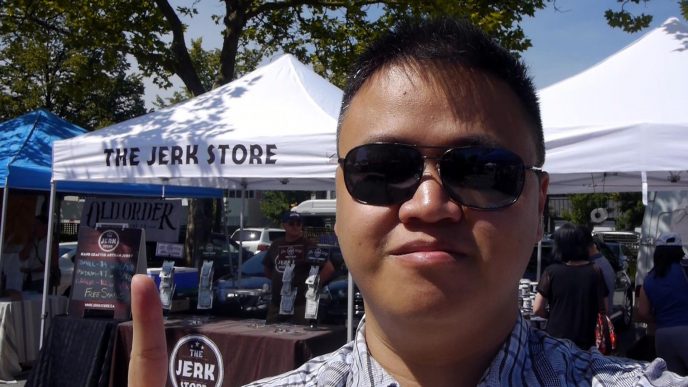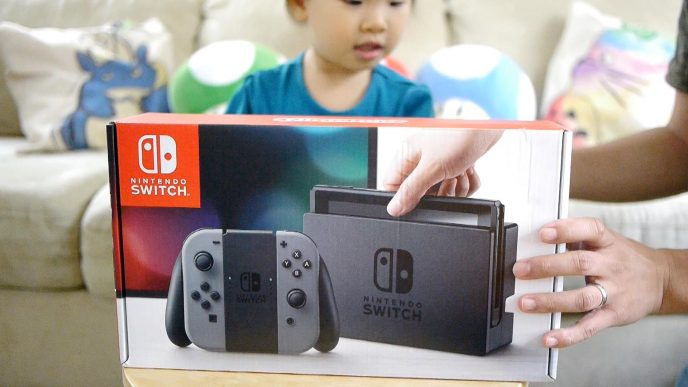I’ve been on YouTube for more than ten years. When I started, it wasn’t quite the dominating force that it is today and I still published some of my videos on Vimeo, Viddler or Google Video. At the time, YouTube was just a convenient place for me to share some of my videos and I did so in a rather sporadic and unplanned manner.
For 2017, I decided to make a big change and I committed myself to uploading a new vlog each and every Monday. I didn’t have any real expectations for what sort of success I’d be able to enjoy on the platform. Instead, it was more of a creative exercise and it was an effort to develop a better presence on the platform.
We all know that consistency plays a huge role on YouTube, just like with so many other online efforts, so I wanted to have more of a set schedule and format. During that time, I’ve also learned a lot more about video production and Youtube, and I continue to learn more each week. On the technical side, I’ve picked up on configuring end screens and cards, for example.
From more of a big picture perspective, here are five big lessons I’ve learned about shooting (and editing) better videos for YouTube.
1. Good Lighting Is Paramount
Not everyone wants to (or needs to) invest in a fancy three-point lighting rig with perfectly calibrated LED bulbs and soft boxes. You will still want to pay careful attention to your lighting wherever possible. The main light source should be behind the camera so that your face is suitably (and evenly) illuminated.

If the main light is behind you, then you’re going to backlit and appear as a shadow. If you shoot outside in the middle of the day, the sun directly overhead is going to be too harsh and it’s going to cast some unfortunate shadows too. A little shadow on your face can add depth, but you want your face to be clearly visible.
2. Pay Attention to the Audio
Far too many people pay way too much attention to the video and they completely forget about the audio. They’ll go out and buy an expensive DSLR with a fancy lens, because they think that it’ll produce a better looking picture. And then they just use the on-board microphone to mediocre results.
Good audio is arguably even more important than good video. You don’t have to spend a lot on a microphone, but you should get an external mic — even if you’re shooting on your smartphone. I’ve mostly been using a Rode VideoMicro (about $59) for convenience. If you only need the audio from your voice, an inexpensive lavalier mic (also called a “lapel mic”) is a worthy investment.
3. Outline But Don’t Script
Regardless of the format of your video, you don’t want to come off as a rambling idiot who veers off on a number of unrelated tangents. Just as you should be mindful when putting together your blog posts or any other online content, you should be just as mindful when producing videos for YouTube.

What I recommend is putting together a rough outline with key bullet points you want to cover in the video. You can even write these down on an index card and tape this just below the camera for quick reference to jog your memory while shooting. I don’t recommend writing out exactly the words you want to say, because you’ll get far too tempted just to read the script.
This might be okay if you get set up with a teleprompter, but barring that, you want your words to feel natural and conversational, because that’s what YouTube audiences expect.
4. Avoid Densely-Patterned Clothes
Here’s another detail that far too many tend to forget. Even when you have a higher quality, more expensive camera, wearing clothing with tight stripes or other densely repeated patterns can result in something called a moire effect or a moire pattern. Basically, it creates this weird “fuzzy” interference pattern.
That can be very distracting and unprofessional. When you know that you’ll be shooting a video, you should generally try to dress in solid colors as much as reasonably possible. And don’t be afraid to wear bolder colors either, because they can really stand out on video.
5. Work on Those Thumbnails
It doesn’t matter how good your video is if no one watches it. And in order for someone to watch your YouTube video, they’ll first need to click on it. And more often than not, their first impression will be based on the video thumbnail you select.
YouTube lets you choose between three frames that the algorithm thinks represent your video content, but it is usually preferable if you create your own video thumbnail ahead of time. It needs to be a 16:9 aspect ratio (1920 x 1080 is usually fine). You can grab a video frame for simplicity or you can take it a step further with a little editing in PhotoShop.
You’ll develop your own look and style. For me, what I ended up gravitating toward for my vlog thumbnails was a strong visual accompanied by a three word “title” along the left side. Some people put up “signs” with words on them and some people custom create entirely new images altogether. It’s totally up to you, but thumbnails are definitely not an area you want to overlook.
YouTube is a learning process to be sure, but these five tips should point you in the right direction.
